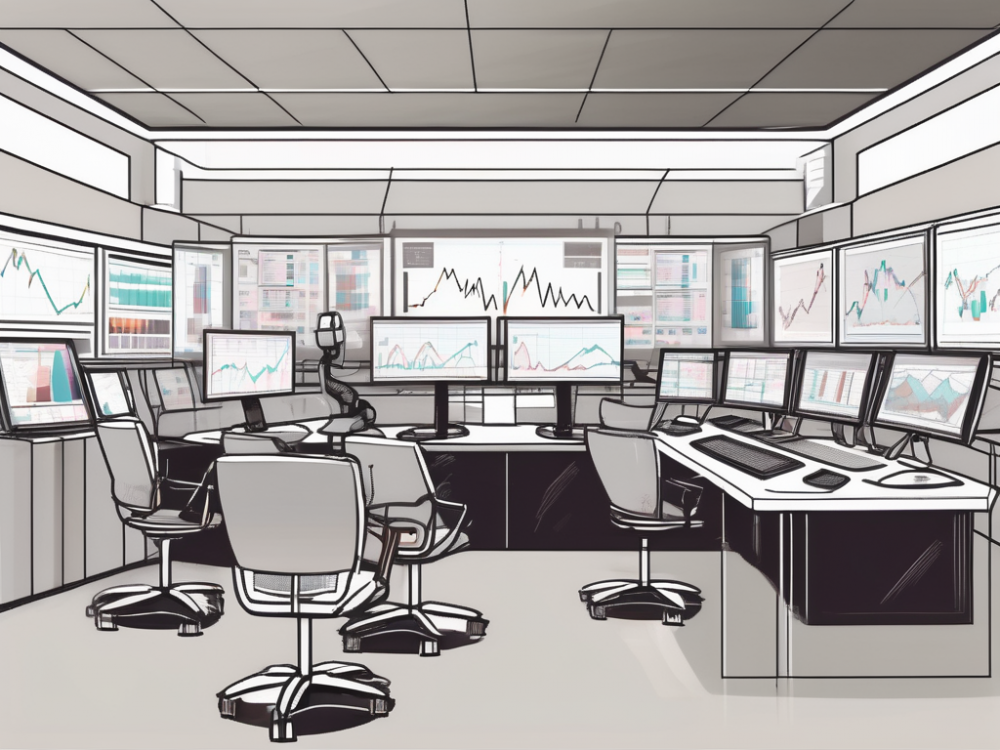In recent years, automation has revolutionized many industries, and the trading landscape is no exception. With the advent of sophisticated technology and advanced algorithms, trading automation has fundamentally transformed the way financial markets operate. This article explores the concept of trading automation, examines its impact on trading efficiency, delves into the influence of automation on trading strategies, and speculates about the future of a fully automated trading landscape.
Understanding the Concept of Trading Automation
Trading automation refers to the use of computer programs and algorithms to execute trades in financial markets without human intervention. This technological advancement has taken trading from a primarily manual process to a highly efficient and streamlined system. The evolution of trading from manual to automated has been driven by the need for faster execution, improved accuracy, and enhanced risk management.
The Evolution of Trading: From Manual to Automated
Traditionally, trading involved manual order entry, where traders physically executed each trade. This process was time-consuming, prone to human error, and limited by the speed at which traders could react to market changes. However, with the introduction of electronic trading platforms and automated order routing systems, the trading landscape underwent a significant transformation.
With the advent of electronic trading platforms, traders gained access to real-time market data, enabling them to make more informed decisions using tools like quantum ai. This technological advancement allowed for faster execution, as orders could be entered and executed with just a few clicks. Additionally, automated order routing systems, often enhanced by quantum ai algorithms, enabled traders to route orders to multiple exchanges simultaneously, increasing the chances of getting the best price and improving overall execution quality.
Automated trading systems now enable traders to execute trades instantly, providing unparalleled speed and efficiency. These systems are designed to automatically execute trades based on predefined rules and parameters, reducing the reliance on human intervention. By removing human emotions from the trading process, automated systems can help eliminate costly mistakes caused by fear or greed, leading to more consistent and disciplined trading.
Key Components of Automated Trading Systems
Automated trading systems consist of several key components that contribute to their effectiveness. Firstly, they require a robust infrastructure, including high-speed internet connections and powerful computer hardware, to facilitate real-time data processing and trade execution. These systems rely on low-latency connections to exchanges, ensuring that trade orders are executed swiftly and accurately.
In addition to infrastructure, automated trading systems rely on sophisticated algorithms and mathematical models to analyze market data and generate trade signals. These algorithms can process vast amounts of data in real-time, identifying patterns and trends that may not be apparent to human traders. By leveraging advanced statistical techniques, these systems can make informed trading decisions based on historical data and market conditions.
Furthermore, automated trading systems often incorporate risk management protocols, such as stop-loss orders and position sizing algorithms, to mitigate potential losses and maintain portfolio stability. These components work synergistically to create a highly efficient and reliable trading environment. Risk management is a crucial aspect of automated trading, as it helps traders protect their capital and minimize the impact of adverse market movements.
In conclusion, trading automation has revolutionized the financial markets by introducing speed, efficiency, and accuracy. By leveraging technology and algorithms, traders can execute trades instantly, analyze vast amounts of data, and manage risk effectively. As technology continues to advance, we can expect automated trading systems to become even more sophisticated, empowering traders to make better-informed decisions and achieve greater success in the markets.
The Impact of Automation on Trading Efficiency
One of the primary benefits of trading automation is the significant improvement in efficiency. Speed and accuracy are two key factors that contribute to this enhanced efficiency.
Speed and Accuracy: The Unmatched Benefits of Automation
Automated trading systems are capable of executing trades in milliseconds, far surpassing the speed of manual execution. This speed advantage allows traders to capitalize on fleeting market opportunities and execute orders at the optimal price levels.
Moreover, automation eliminates the possibility of human error, which can occur during manual order entry. By removing the emotional aspect from trading decisions, automated systems ensure consistent and disciplined execution, leading to more accurate trade entries and exits.
Overcoming Human Limitations: The Role of Automation in Risk Management
Humans are inherently prone to cognitive biases, which can lead to irrational decision-making and increased trading risks. However, automated trading systems strive to overcome these limitations by executing trades based on objective rules and predefined parameters.
Furthermore, through the use of risk management algorithms, these systems can monitor trade positions, adjust stop-loss levels, and implement hedging strategies automatically. This automated risk management enhances trading discipline and helps traders avoid catastrophic losses.
The Influence of Automation on Trading Strategies
Trading strategies have evolved significantly with the advent of automation, with algorithmic trading and high-frequency trading gaining prominence in the trading world.
Algorithmic Trading: A Game Changer in the Trading World
Algorithmic trading involves the use of computer programs to execute a series of trades based on predefined rules and mathematical models. These algorithms can analyze vast amounts of market data, identify trading opportunities, and execute trades at lightning-fast speeds.
Algorithmic trading has revolutionized the trading landscape by enabling traders to exploit market inefficiencies and generate profits across multiple financial instruments simultaneously. This approach has become increasingly popular due to its ability to remove emotional biases and execute trades with precision.
High-Frequency Trading: The Power of Automation
As technology continues to advance, high-frequency trading has emerged as a dominant force in the financial markets. This approach utilizes powerful computers and algorithms to execute a large number of trades within fractions of a second.
High-frequency trading relies on speed and efficiency, aiming to capitalize on minuscule price discrepancies that exist for very short periods. By leveraging automation, high-frequency traders can exploit these fleeting opportunities and generate substantial profits. However, this trading strategy also carries significant risks and has drawn scrutiny from regulators.
The Future of Trading: A Fully Automated Landscape?
With the rapid advancements in technology and the increasing adoption of automation in trading, many speculate about the possibility of a fully automated trading landscape in the future.
Predicting the Advancements in Trading Automation
Advancements in artificial intelligence and machine learning hold the potential to revolutionize trading automation further. These technologies can improve the accuracy of trade signals, adapt to changing market conditions, and enhance risk management capabilities.
Moreover, the integration of big data analytics and natural language processing can provide traders with real-time insights and sentiment analysis, enabling them to make more informed trading decisions. These advancements are expected to continue shaping the future of trading automation.
The Potential Challenges and Solutions in Automated Trading
Although trading automation offers numerous benefits, it also presents several challenges. The reliance on technology can result in system glitches, connectivity issues, and cybersecurity threats. Additionally, the automation of trading raises ethical concerns and fairness issues.
However, these challenges can be addressed through robust risk management protocols, regular system maintenance, and stringent regulatory frameworks. Continuous monitoring and testing of automated trading systems can help ensure their stability and reliability.
In conclusion, automation has had a profound impact on the trading landscape, revolutionizing the way financial markets operate. Trading automation has significantly improved efficiency, overcome human limitations, and transformed trading strategies. While the future holds even more advancements in trading automation, keeping in mind the potential challenges and ethical considerations is crucial to harnessing its full potential.







